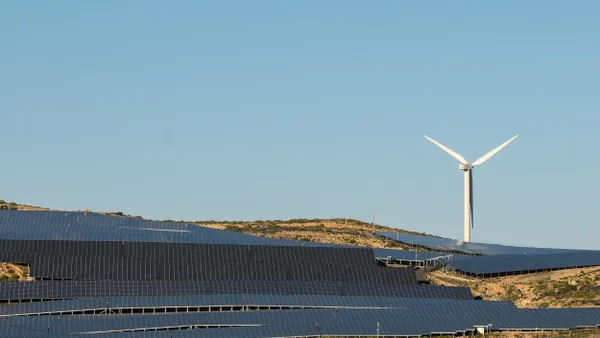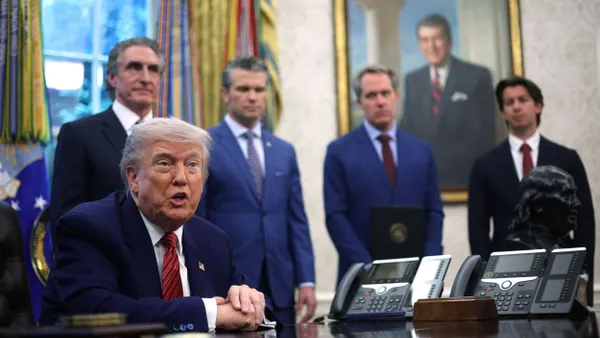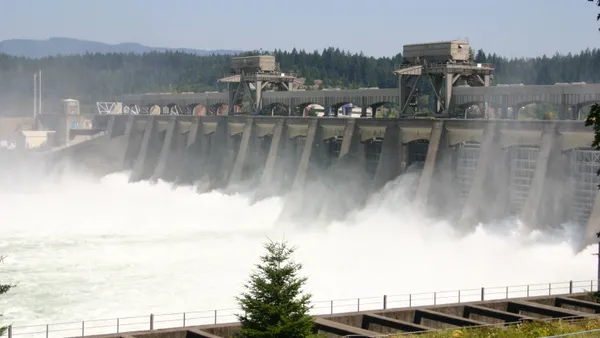Dive Brief:
- Leaders on the Senate Energy and Natural Resources Committee on Thursday introduced a new version of their bipartisan energy proposal that stalled in a conference committee with the House late last year.
- The Energy and Natural Resources Act of 2017, unveiled by Committee Chair Sen. Lisa Murkowski (R-AK) and Ranking Member Sen. Maria Cantwell (D-WA), is a broad bill with titles on efficiency, infrastructure, cybersecurity, vehicles and appliances, among other provisions.
- Majority Leader Sen. Mitch McConnell fast-tracked the measure, allowing it to bypass committee votes. The Hill reports the new bill is mostly unchanged from the version that passed the Senate last year by an 85 to 12 vote.
Dive Insight:
It may be mostly old wine in new bottles, but Murkowski's energy omnibus bill already has the attention of the White House.
At a Department of Energy event yesterday, Secretary Rick Perry said he has been in discussions with the Alaska senator on the measure's wide-ranging provisions.
"I talked to Chairman Murkowski today about her legislation," Perry said. "I am really looking forward, in fact over the weekend, really taking a look at it."
On Wednesday, McConnell put the bill on the floor calendar, allowing it to skip the committee process. The Senate Leader would need a separate motion to bring the bill up for a vote however, meaning one may not be imminent before the July 4 recess.
If approved, the bill would be the first major energy legislation passed by Congress in a decade. Its many provisions aim to boost energy efficiency, modernize energy infrastructure and protect the grid from cyberattacks.
While the Senate appears keen to move on the bill, it would still have to pass through the House, where the previous version died last year. The lower chamber passed its version of the bill in a 249-174 vote in December, but lawmakers could not reconcile differences in a conference committee.
In January, Sen. Cantwell laid the blame squarely at the feet of House Speaker Paul Ryan (R-WI), who she said failed to educate his caucus on cybersecurity provisions.
"It was ludicrous to go into conference negotiations and have to convince our House colleagues that cybersecurity was not somehow a Democratic proposal," Cantwell said. "I mean they didn't even have it in their House response and when we got into door-to-door confrontation with them, they didn't want to do it, and we were like 'what do you not get about cybersecurity?'"
With Trump in the White House, Murkowski is hopeful GOP lawmakers will see the bill as an opening for bipartisan collaboration.
“We came very close to achieving that goal last year, and have continued to work with our congressional colleagues and a wide range of stakeholders to write another strong bill,” she said in a statement.













